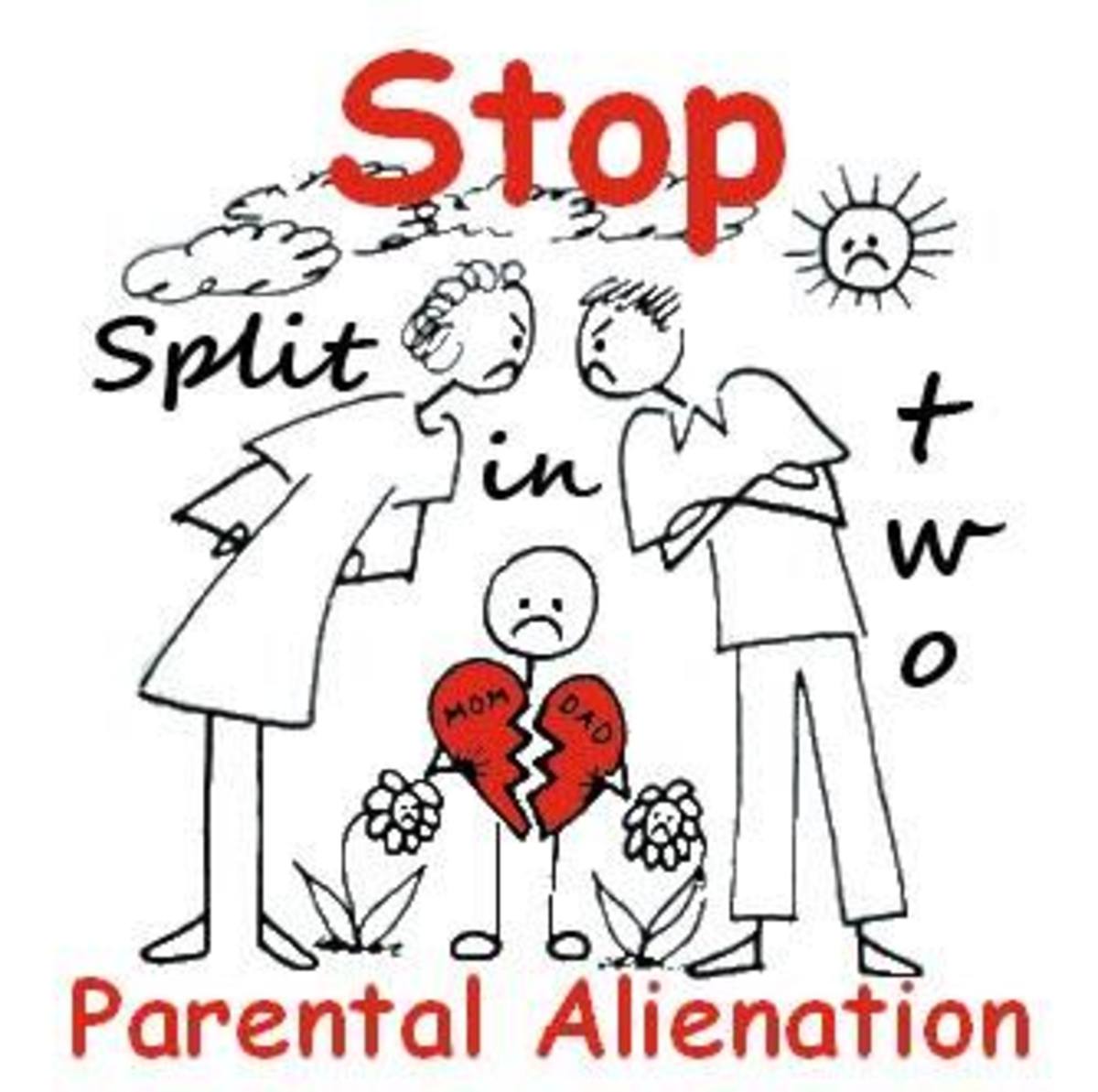Co-Parenting With a Difficult Ex?

Divorce isn't the end of it
The divorce is final and you might think that's the end of it. If you have kids, it isn't. It's the beginning.
Kids want two parents who love them. Some say they have a right to have two parents who love them. It is up to you and your ex to make that happen. Wait a minute! That would mean you would have to continue to co-parent with your ex, wouldn't it?
Yes, it would indeed. If your motivation for divorcing was to avoid contact with your ex, you just managed to make co-parenting even harder. The court appearances, the trial and negotiations didn't exactly make things better, did they? Back then, maintaining a working relationship didn't seem so important. It was mostly about you and what you wanted.
With the divorce out of the way, you can see more clearly. Suddenly, the needs of the kids come back into focus and you realize you'll have to co-parent with an ex who may be even more difficult to deal with than ever.
Here, we are going to take a look at a few things you can do to ensure that the kids' needs are taken care of despite the toxic relationship you may have with your ex spouse.

Communicating with your Ex
Every Parenting Plan Involves Contact with the Ex
When your parenting plan involves shared custody you will have frequent communication with your ex for a very long time. Drop-off, pick-up, holiday schedules, school issues, illnesses and a host of other issues will need to be worked out. No plan, regardless of how detailed and meticulously it has been crafted, can possibly account for all contingencies. You're going to communicate one way or another.
When making those important scheduling calls to your ex is a problem for you, chances are you will hesitate to make them in the first place or get them over with without fully communicating what is necessary. That could be a source of escalating animosity and resentment. Who will pay the price for that? Chances are the kids will be the biggest losers.
Here are some tips to help you deal with it better:
Essential Skills Dealing with a Difficult Ex
- Know in advance the topics where you are willing to compromise and where you want to stand firm.
- Know what behaviors you are willing to accept and what is not acceptable. Have an exit strategy when your boundaries have been crossed.
- Be aware of your emotional state so you can check your reaction to surprises.
- Make a list of how you plan to respond to behaviors that frequently upset you.
God in the Middle of Divorce and Single Parenthood
When everything looks the darkest, remember this: Everything is possible with God.
It's not about you or your ex.
It's about the kids.
Resources - Dealing with a Difficult Ex
Dealing with a difficult ex is hard. Fortunately, there are resources you can use on your own or in conjunction with professional help.
Get Professional Help - You don't have to go it alone

Life Coach
A good life coach can teach you to prepare appropriate responses to the most common things that upset you when you talk to your ex. You can learn how to check your own emotional state in advance so you don't over-react when surprises occur. If you can get your ex to do the same, so much the better. If not, then, it's on you alone. Remember, you cannot change your spouse, but you can change your own behaviour. A life coach helps you bring order to chaos.
Mediator
A mediator can help you when both parents agree that two parents are better than one. They just have completely different views how that should happen. Unlike you and your ex, a mediator will focus on the problem and its solution, not each other. In the short-term, the mediator can help you getting past the arrangements to satisfy the immediate needs of the kids. In the longer term, the mediator can help you work out some ground rules for how future interactions should happen. For this to work, both parties will have to agree to it, though.
Therapist
Mediators and coaches are forward looking. They are squarely focused on problem solving. They deal only with the future. The past is the past and is better left that way. Therapists look back to uncover reasons why you have the problems you have. They help you heal and only then do they start dealing with the future. Whether you need this kind of help can sometimes be really difficult to realize. Listen to signals from other people.
You can't change your ex.
You can only change yourself.
Professional Help to Avoid
Lawyers
Lawyers do have their place in divorce. Sometimes they can be useful in its aftermath, but it should be the last resort. Going to court or the threat of going to court may solve your problem in the short term, but your longterm goals may be in jeopardy. Parenting your children is a longterm process. Keep the goal in mind: Turn them into mature adults not despite the relationship you have with your ex, but because of it.
Lawyers are very good at evaluating alternatives. They have a vast collection of possible outcomes to share. Just keep in mind that they make more money representing you than educating you.
Dealing with Specific Situations
No one can cover all the possible scenarios you will encounter with a difficult ex. I'll add some in this space as I hear about them.
Just remember always: It's about the kids, not you nor your ex.
Verbal Abuse
The number one thing you need to do if that occurs is to set boundaries. Decide for yourself what you are willing to overlook and what you plan to do when that line is crossed.
For example, you may be able to turn a deaf ear to abusive language when it happens in front of you alone, but not in front of the kids. You may decide to simply hang up the phone when specific levels are reached.
In situations when urgency does not require an immediate response, e-mail and text messaging can be a great way to put some distance between you and him/her. You're also likely to reflect more on what you say and how you say it.
Parent Alienation
I'll just assume you're not the one doing the alienation and that you might be on the receiving end.
Before you get too upset, consider the possibility that the other parent is doing it in an, abeit misguided, attempt to protect the kids the best they know how. He/she may not be aware that it actually hurts the kids.
If alienation happens to you, and it will whether intentional or not, perceived or real, there are two very important thing to do, or, rather, not do:
1. Do not retaliate in kind. As difficult as this may be, you need to be extra supportive of your child's relationship with his/her other parent. You need to show through your actions you're not a monster or bad parent. If it is too hard, hire a coach for a while.
2. Do not interrogate your child about the other parent. Be loving and supporting and only make notes of things that come up in casual conversation.
Be sure to keep all appointments and schedules even if it makes you sick.
The other parent avoids contact with the kids
As painful as this may be, it actually happens quite often that one parent or, worse yet, both parents, shirk out of parenting responsibilities. Most of the focus is on missing child support payments, but it is not the only problem. Some parents simply aren't interested in being parents.
Initially, for some, this might be the answer to their prayers. On second thought, however, kids want two parents who love them. Your role then, if you love them, becomes to encourage that it happens. You may not be able to get your ex to live up to your ideal parenting role, but you can at least get out of the way and make the option available as often as you can.
The Social Divorce
Friends and Family
Divorce is not just between you and your spouse. Your kids are still going to be your kids. Your in-laws are still going to be their grandparents. Uncles and aunts are still going to be uncles and aunts.
It may be painful for your former spouse if you still have contact with your in-law relatives. In-law relatives may have to sort out their own loyalties.
You may have had a cirle of friends with whom you met for social events like the annual backyard BBQ or picnic. Will they have to choose sides? Can you maintain those relationships? Should you?
None of these issues are addressed in traditional adversarial divorces. Using negotiation and mediation, they can be. If these things are important to you, it may pay to take the time and go through the pain it takes to work it out.
If you have this problem, chances are that someone else has had a similar experience. Somebody probably came up with a solution, so post away.
If you came up with something that worked for you, share it.








